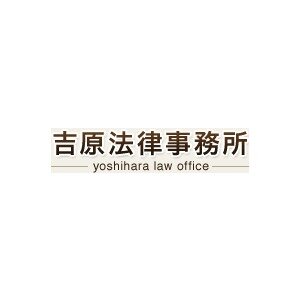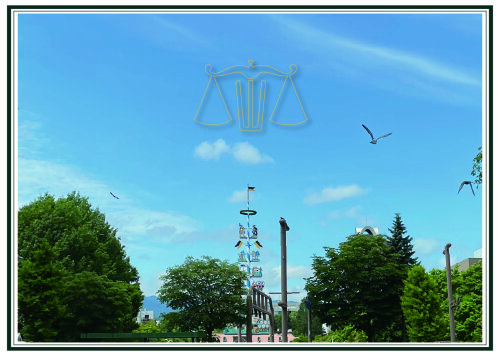Best Family Lawyers in Sapporo
Share your needs with us, get contacted by law firms.
Free. Takes 2 min.
Free Guide to Hiring a Family Lawyer
List of the best lawyers in Sapporo, Japan
About Family Law in Sapporo, Japan
Family law in Sapporo, Japan, operates under the Japanese legal system and is characterized by civil law traditions. This field of law encompasses a broad range of issues related to family relationships, such as marriage, divorce, child custody, and inheritance. The city of Sapporo, like the rest of Japan, follows the national legal framework, but there might be local resources and courts specifically dedicated to handling family law matters. It is important for those dealing with family disputes or transitions to be aware of their legal rights and responsibilities in Sapporo.
Why You May Need a Lawyer
Many situations may necessitate the need for legal help in family matters. This includes divorce proceedings, especially when there are disputes over assets, alimony, or custody of children; domestic violence cases requiring protection orders; establishment of paternity; adoption procedures; settling family estates; and addressing family disputes legally. A lawyer can provide guidance through the complexities of the legal system, negotiate settlements, and represent individuals in court, if necessary.
Local Laws Overview
Key aspects of family law in Sapporo are governed by Japanese national legislation, including the Civil Code and family-related laws such as the Family Registration Law. Important matters to note include:
- Marriage requirements, such as mutual consent and the minimum age of 18 for males and 16 for females.
- Statutory grounds for divorce including mutual consent, adultery, desertion, and other significant reasons.
- Child custody determinations that focus on the best interest of the child, with both parents maintaining parental rights post-divorce unless otherwise decided by the court.
- Inheritance laws that provide for a legal share for surviving spouses and children.
Frequently Asked Questions
How do I file for divorce in Sapporo?
To file for a divorce in Sapporo, you must submit a divorce notification to the local ward office if by mutual consent, or otherwise file a case with the family court for a contested divorce.
What are my rights in child custody disputes?
In Japan, rights in child custody disputes are based on ensuring the welfare of the child. Courts will make determinations based on the child's best interests, which include considering the child's wishes, the parents' living situations, and who has been the primary caregiver.
Are prenuptial agreements recognized in Sapporo?
Prenuptial agreements are not commonly used in Japan, but they are legally recognized as long as they are fair and made in accordance with the Civil Code.
Can I adopt a child in Sapporo?
Yes, adoptions are carried out under the family court's supervision, and prospective parents must meet certain conditions as assessed by the court.
How is property divided in a divorce?
Property division during a divorce is done based on the principle of equitable distribution, taking into account factors like the duration of the marriage, age, earning capacity, and the role in the household.
Is alimony mandatory after divorce?
Alimony is not automatically awarded and it is dependent on the circumstances of each case, such as the income and living standards of the parties involved.
What is the process for domestic violence protection in Sapporo?
Victims of domestic violence can apply for a Protection Order from the Family Court. The police can provide immediate protection and assistance in severe cases.
How can I change my family name?
Family names can be changed due to marriage, divorce, or through legal procedures with the family registration system.
What should I do if I'm not receiving child support payments?
If you are not receiving court-ordered child support payments, you may contact a lawyer to enforce the order, or seek assistance from the Japanese government which provides a child support allowance system.
Can foreigners access family legal services in Sapporo?
Foreigners are entitled to access legal services in Sapporo and may seek assistance from lawyers who are experienced in international family law matters.
Additional Resources
Individuals may contact the Sapporo Family Court, the Japanese Federation of Bar Associations, or non-profit organizations that specialize in family issues for further assistance. Additionally, the Child Support Agency can be a resource for child support issues.
Next Steps
If you require legal assistance in family-related matters in Sapporo, your first step should be to consult with a qualified family law attorney who has experience with the Japanese legal system. They can provide you with comprehensive advice tailored to your situation and guide you through the necessary legal procedures. For international family law matters, it's recommended to find a lawyer who speaks your language or engage the services of a professional translator.
Lawzana helps you find the best lawyers and law firms in Sapporo through a curated and pre-screened list of qualified legal professionals. Our platform offers rankings and detailed profiles of attorneys and law firms, allowing you to compare based on practice areas, including Family, experience, and client feedback.
Each profile includes a description of the firm's areas of practice, client reviews, team members and partners, year of establishment, spoken languages, office locations, contact information, social media presence, and any published articles or resources. Most firms on our platform speak English and are experienced in both local and international legal matters.
Get a quote from top-rated law firms in Sapporo, Japan — quickly, securely, and without unnecessary hassle.
Disclaimer:
The information provided on this page is for general informational purposes only and does not constitute legal advice. While we strive to ensure the accuracy and relevance of the content, legal information may change over time, and interpretations of the law can vary. You should always consult with a qualified legal professional for advice specific to your situation.
We disclaim all liability for actions taken or not taken based on the content of this page. If you believe any information is incorrect or outdated, please contact us, and we will review and update it where appropriate.
Browse family law firms by service in Sapporo, Japan
Sapporo, Japan Attorneys in related practice areas.











